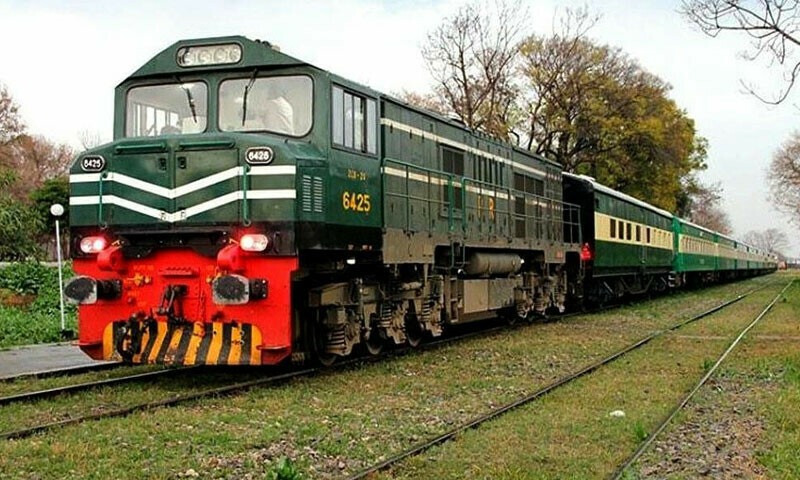Incident Near Diona Station
Rail services between Rawalpindi and Lahore were disrupted on Friday after the engine of the Awam Express derailed near Diona, a town in Pakistan’s Gujrat district. The incident occurred when strong winds uprooted trees, which fell onto the railway tracks.
According to officials, the derailment took place close to Diona Jilani Station. The engine of the passenger train, carrying number 8317, was dislodged from the tracks as it struck the obstruction. Fortunately, no casualties or serious injuries were reported.
Rescue and Recovery Efforts
Pakistan Railways immediately dispatched technical staff to the site. Officials confirmed that the affected engine would be lifted and transported from Wazirabad to Diona Jilani Station with the help of hydraulic jacks. This process, they said, was necessary to restore the train to working condition and clear the busy railway line.
“The priority is to remove the obstruction and resume train operations safely,” one railway spokesperson explained. He added that alternative arrangements were being made for passengers stranded due to the delays.
Delays on a Key Route
The derailment has caused significant disruption along the Rawalpindi–Lahore corridor, one of Pakistan’s busiest railway routes. Several passenger services experienced delays, forcing travelers to wait for hours at stations along the line.
Eyewitnesses reported scenes of frustration among passengers, many of whom were left without clear information about alternative travel options. Railway staff at stations worked to manage crowds and provide updates.
Weather-Related Challenges
Strong seasonal winds are common in the Punjab region during September. Such conditions often bring down trees, power lines, and other infrastructure, posing risks to transport networks.
Railway experts noted that overhanging trees near tracks can become hazardous during storms if not regularly maintained. “Preventive measures like trimming trees near critical lines are essential for safety,” a former railway engineer commented.
Pakistan Railways’ Safety Record
Pakistan’s railway system, which carries millions of passengers annually, has long faced challenges related to safety and maintenance. Derailments, collisions, and delays are frequently reported, often linked to aging infrastructure and limited investment.
According to official data, Pakistan Railways operates more than 100 passenger trains daily, transporting over 50 million passengers each year. However, the network struggles with outdated equipment and insufficient funding for upgrades.
In recent years, the government has announced modernization plans, including track repairs and new engines. Yet incidents like the derailment near Diona highlight the ongoing difficulties in ensuring safe, efficient service.
Impact on Passengers
For those aboard the Awam Express, the derailment was a distressing experience, though most passengers escaped unharmed. Some reported that the sudden jolt caused panic inside compartments. Others expressed frustration at the lack of timely communication regarding onward travel.
“I was traveling to Peshawar for work. Now I don’t know when I’ll reach,” said one passenger while waiting at a nearby station. Families with children were seen sitting on platforms for hours, waiting for updates from staff.
Looking Ahead
Railway officials assured passengers that services would be restored as soon as the engine was re-railed and the tracks inspected for damage. They also emphasized that safety checks would be carried out before resuming full operations.
For now, delays between Rawalpindi and Lahore remain in place, with Pakistan Railways urging passengers to stay updated through official announcements. The incident serves as a reminder of the vulnerability of the country’s transport infrastructure to extreme weather and the urgent need for preventive measures.















